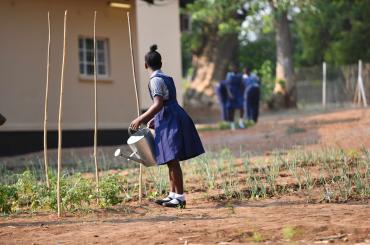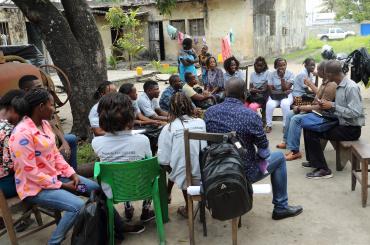
Mozambique
-

Training teachers on gender-based violence helps keep girls safe in school
Can targeted interventions reduce school-based gender-based violence? Teacher and student training on gender-based violence in Mozambique leads to a reduction in teacher-led violence and greater school retention for girls.
-

People don’t realise the social stigma around HIV/AIDS is falling… So let them know!
A new experiment in Mozambique found that the social stigma attached to HIV has been falling, but people do not tend to realise it. A simple message that informed individuals of their communities’ true (low) degrees of stigma substantially increased ...
-

Community health programmes and HIV/AIDS outcomes in Mozambique
A widely implemented HIV/AIDS programme inadvertently decreased HIV testing by worsening misinformation and HIV-related stigmatising attitudes, but a simple follow-up intervention offset the programme’s adverse effects.
-

How information ahead of floods can improve climate resilience: Lessons from Mozambique
Providing flood risk and mitigation information to households through digital channels like text messages improved community-level collaboration in Mozambique
-

Incentivising school attendance: Evidence from Mozambique
Research in Mozambique highlights new, lower-cost approaches to reducing pupil absenteeism in low-income countries
-

The multiplier effects of FDI: Evidence from Mozambique
Natural resource discoveries trigger FDI bonanzas and employment booms through a local FDI job multiplier, but also induce political instability
-

Combining improved seed varieties and index insurance to address drought losses
Bundling genetic and financial technologies can make small-scale agriculture more resilient and productive
-

Forced displacement and human capital: Evidence from Mozambique
Conflict-driven displacement can trigger structural transformation, but can also cause long-lasting social and psychological trauma
-

Human capital growth: An engine for structural transformation
Growth in human capital reduces agricultural labour supply, while in turn the expansion of non-agricultural sectors drives human capital growth